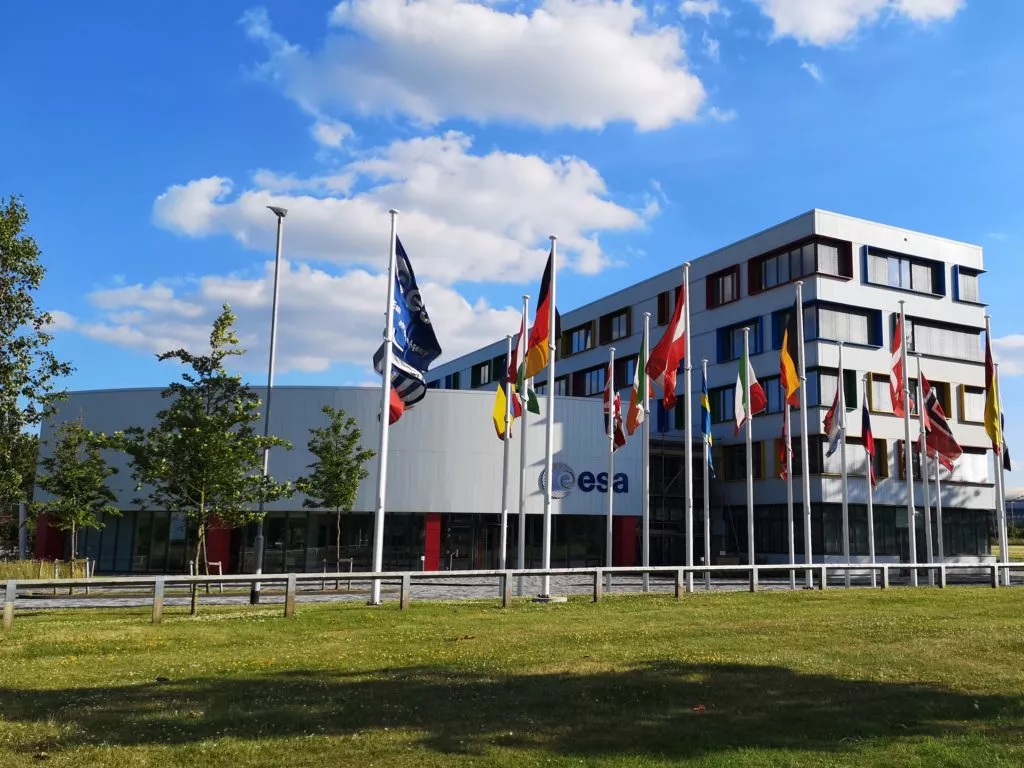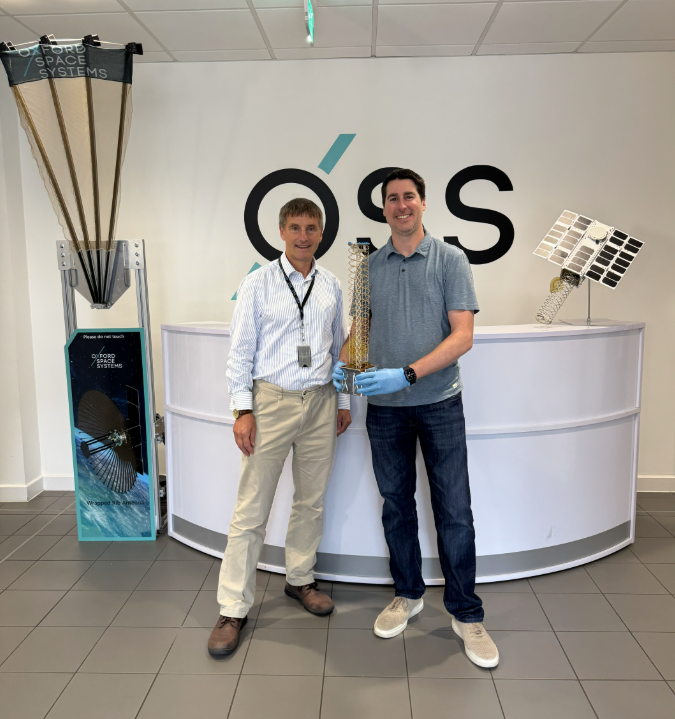
‘A magic bullet for immunotherapy’ – Etcembly’s story
A techbio company that’s set to bring first-in-class drug development to immunotherapy is experiencing tenacious growth from its base at Harwell Campus.
Etcembly is the brainchild of Michelle Teng and Jacob Hurst, who have a background in T cell immunotherapy research.
The duo launched the company in early 2020, which has since grown from one employee and being based in a small office at Oxford Science Park, to a multidisciplinary team of 30 building two pipelines of innovation at Harwell. They were joined by CSO, Nick Pumphrey, who brings a wealth of TCR drug development experience and CBO, Scott Cuthill, a highly experienced BD veteran.
Michelle said: “We were based in a mature-stage biotech, where sometimes opportunities to explore new technologies are limited.
“Jake and I were bouncing lots of ideas off each other. One of the ideas was in generative AI in T Cell therapeutics. So we decided to start a company by ourselves to find out if we could make it work.”
The concept is based on T Cell Receptors (TCRs) which bind to proteins found on abnormal cells within the body. This binding causes the T Cell to attack the abnormal ones and help the body fight infection and disease. By understanding the repertoires of TCRs and harnessing latest advancements in machine learning, it’s possible to engineer TCRs for therapy.
Michelle and Jacob secured start-up funding to start exploring their ideas. Even being plunged into lockdown during 2020 didn’t hold them back.
“Being stuck in our own studies or living rooms and working over Zoom, it helped us distil our ideas. It was a fun time,” said Michelle.
“We were bouncing our ideas, looking for lab space and fundraising. Then, everything fell into place.”
Etcembly is now working to build the world’s largest machine learning database in T cell therapeutics. It’s trademarked platform, EMLy (or Etcembly Machine Learning), has been trained to read millions of T cell receptors (TCRs).
A pivotal moment in Etembly’s growth story was securing lab space at Harwell Campus – in both the Atlas Building and within the Research Complex.
“The space really suited the scalability of our company. It was a no-brainer and we relocated in October 2021.
“The Lab space within the Research Complex was also essential for us while we were building our labs. During the pandemic, lab supplies and consumables were in short supply.
“We were fortunate to have space. in the complex and could use their advice and infrastructure to get things off the ground. There’s a strong scientific community that we interacted with in the early days.”
Building the plane whilst flying
The move to Harwell coincided with an initial partnership project with a European cell therapy biotech, which involved Etcembly optimising TCRs using machine learning.
Michelle said: “That was our first real life user test case, and it was really successful. We delivered from start to finish within six months.
“It exceeded our expectations. It was like we were building the plane while we were flying it. We had a solid team with a will to succeed.”
Harwell also proved an effective base for Etcembly because of its close proximity to the UK synchrotron.
“We love the fact that we can tell our investors that we are right next to a particle accelerator.”
She also believes the business is unique due to its makeup of 50% wet lab and 50% dry lab, focused on machine learning and tech innovation.
“It’s a beautiful nexus of the wet and the dry, a seamless cycle.”
A magic bullet
Michelle is particularly excited about Etcembly’s growth because of the impact drug development could have on patients – herself included.
“This is an area that’s close to my heart because I suffer from an auto-immune disease myself, and I undergo immunotherapy. This could be a magic bullet for me!”
She’s also passionate about driving diversity and inclusion with research.
“Existing trials are based on the predominate European population. That’s a limitation and extremely short sighted. We are a very cosmopolitan society.
“We need a platform like generative AI to scale the discovery. We want to make it tailorable for other ethnic groups. This is the main ethos of our company – it’s immunotherapy for everyone, not one size fits all.”
Building pipelines
The future of Etcembly is ambitious. The company is preparing for a next round of investment fundraising, with continued work to build two pipelines – one in machine learning and one in drug discovery.
Michelle said: “We have an ML pipeline where we incorporated data from the public domain into our database along with in-house generated proprietary data. We’ve built technology at Harwell where we can sequence T cells at a scale and depth which wasn’t possible before.
“We are going to have first-in-class drug programme, which we are looking to launch in the next six months. We are hoping to bring something fresh, with a twist. So watch this space!”
Factbox:
Date founded: 2020
Mission: “Unlock a new world of immunotherapies for all not just the few”
Speciality: AI and machine learning within TCR therapeutics research
30 employees
From 7 employees to 20 within a year of being based at Harwell


